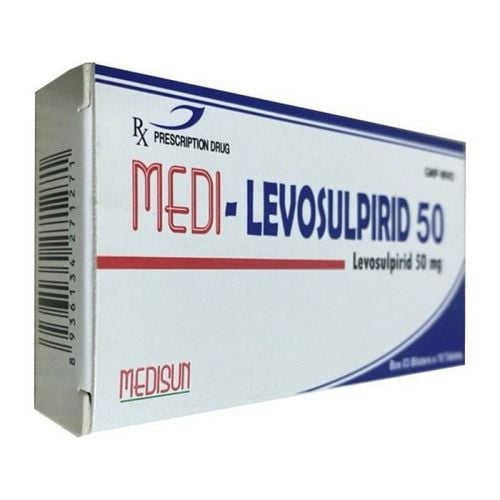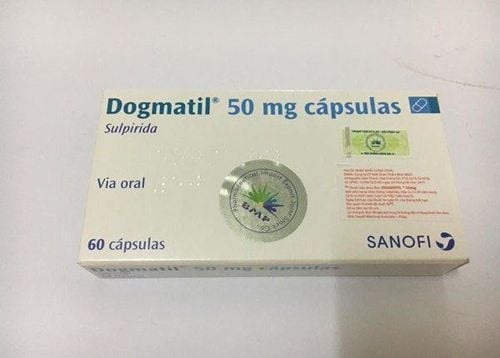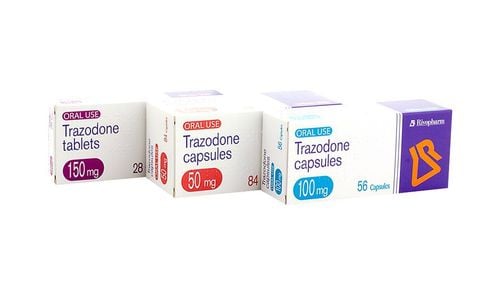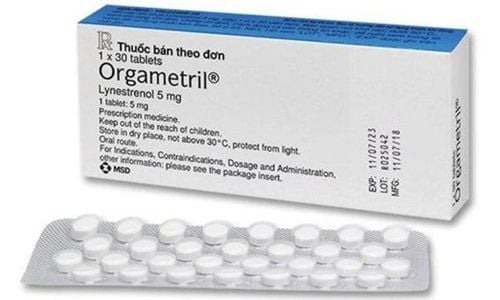Concerta is used to treat Attention Deficit Hyperactivity Disorder (ADHD). The pharmacological action involves modifying the levels of certain natural chemicals in the brain. The primary effects include improving attention, enhancing focus on tasks, and managing behavioral issues. It may also help with task organization and improve listening skills.
1. How to Use Concerta
Before taking Concerta, you should carefully read the instructions provided by your pharmacist. If you have any questions, immediately ask your doctor or pharmacist and do not take additional doses without prior consultation.
Concerta is taken orally as prescribed, typically once daily in the morning. Taking it late in the day may cause difficulty sleeping or insomnia.
You should swallow the tablet whole with a full glass of water (8 ounces/240 ml). Do not crush or chew the tablet, as this may release all the medication at once, increasing the risk of side effects due to the exposure to high drug concentration. Only break the tablet if it is scored and directed by a doctor or a pharmacist.
Taking Concerta regularly as prescribed will help patients achieve the maximum benefit. To help with medication adherence, the patient can schedule to take the drug at the same time everyday.
The dosage will depend on your health condition and level of response to the treatment. Your doctor may guide you in adjusting the doses as necessary. However, it is advised that you should not adjust the dose or stop taking the medication without consulting your doctor or pharmacist.
When a concerta regimen is suddenly halted without professional guidance, you may experience severe symptoms such as depression, suicidal thoughts, or other mental/mood changes. If you have been using methylphenidate for a long time or at high doses, consult a doctor or a pharmacist immediately. Lastly, towards the end of the treatment, your doctor may gradually reduce your concerta doses to avoid withdrawal syndrome.
While Concerta is effective for many people, the drug may cause dependence and addiction issues. Moreover, you are at higher risk of developing concerta addiction if you have a history of stimulant use disorders (such as drug or alcohol abuse). Hence, you should strictly follow your doctor’s prescription to minimize the risk of dependence.
If your condition does not improve or worsens during treatment, consult a doctor or a pharmacist so they can adjust your treatment plan accordingly.

2. Side Effects of Concerta
Common side effects of Concerta may include restlessness, insomnia, loss of appetite, weight loss, dizziness, nausea, vomiting, or headaches. If any of these side effects persist or worsen, consult a doctor or a pharmacist.
Concerta may cause severe hypertension which requires close monitoring to promptly inform your doctor. Other side effects may include signs of poor circulation in the fingers or toes (such as coldness, numbness, pain, or skin color changes), unusual sores on the fingers or toes, irregular heartbeats, changes in mental health or behaviour (such as agitation, aggression, mood swings, unusual thoughts, or suicidal thoughts), involuntary muscle movements (such as seizures or tremors), difficulty controlling speech or sound, or vision issues (such as blurred vision).
Furthermore, you should seek immediate medical attention if you experience any of the following symptoms such as: fainting, seizures, chest pain (e.g., chest/jaw/left arm pain, shortness of breath, unusual sweating), or signs of a stroke (such as one-sided weakness, slurred speech, sudden vision changes, confusion).
In rare cases, male patients using Concerta may experience painful or prolonged erections lasting for more than 4 hours. Although being rare phenomena, caregivers or parents should monitor for this side effect in young boys regardless. If this occurs, parents should discontinue the medication immediately and consult the doctor.
Severe allergic reactions to Concerta are rare, but if you experience symptoms such as rash, itching/swelling (especially on the face/tongue/throat), severe dizziness, or difficulty breathing, contact your doctor or pharmacist immediately.
The aforementioned list may be incomprehensive to all the potential side effects of this drug. However, if you notice any new side effects caused by Concerta, you should consult your doctor or pharmacist for updates.
3. Precautions and Preventive Measures
Any allergies to methylphenidate and dexmethylphenidate must be reported to the physician before the patient takes these medications. Additionally, allergies to any other products and substances must also be informed to a physician.
Notify your doctor or pharmacist if you have a history of cardiovascular disorders, high blood pressure, or a family history of heart problems (e.g., sudden death due to heart issues, irregular heartbeats), personal or family history of mental health disorders (such as bipolar disorder, depression, psychosis, or suicidal thoughts), hyperthyroidism, seizures, or gastrointestinal issues (e.g., narrowing or blockage). Methylphenidate is similar to dexmethylphenidate, as such patients are advised against using dexmethylphenidate while taking methylphenidate.
Patients should avoid alcohol and stimulants use while taking this medication, as these activities may exacerbate dizziness. If used long-term, Concerta can affect a child's growth rate, weight, and height during puberty. To minimize this risk, your doctor may recommend periodic breaks from the medication and regular monitoring of the child's growth. You should always consult a doctor or a pharmacist if any unusual symptoms arise.

Elderly individuals may be more sensitive to Concerta’s side effects, with common symptoms being: difficulty sleeping, weight loss, or chest pain. You should discuss dosage adjustments with your doctor if you experience severe adverse reactions.
During pregnancy, methylphenidate should only be used if absolutely necessary. You should discuss the potential risks and benefits with your doctor. Moreover, this medication can be passed into breast milk, as such you may need to consult your doctor if you are breastfeeding, preventing any potential harm to the infant.
Since methylphenidate is similar to dexmethylphenidate, patients on methylphenidate regimen must avoid medications containing dexmethylphenidate, to prevent possible drug interactions.
Concerta may interfere with certain medical tests (particularly brain-related tests for Parkinson’s disease), potentially leading to inaccurate results. As such, to obtain accurate test results, inform the doctor of your medication uses before undergoing any tests. Lastly, strict adherence to the instruction and prescribed dosage ensures that the patient will obtain optimal therapeutic effects.
Patients can access additional information on medications, healthcare services, and healthy lifestyle advice from doctors and specialists at Vinmec International Hospital.
Reference source: webmd.comPlease dial HOTLINE for more information or register for an appointment HERE. Download MyVinmec app to make appointments faster and to manage your bookings easily.
To arrange an appointment, please call HOTLINE or make your reservation directly HERE. You may also download the MyVinmec app to schedule appointments faster and manage your reservations more conveniently.








